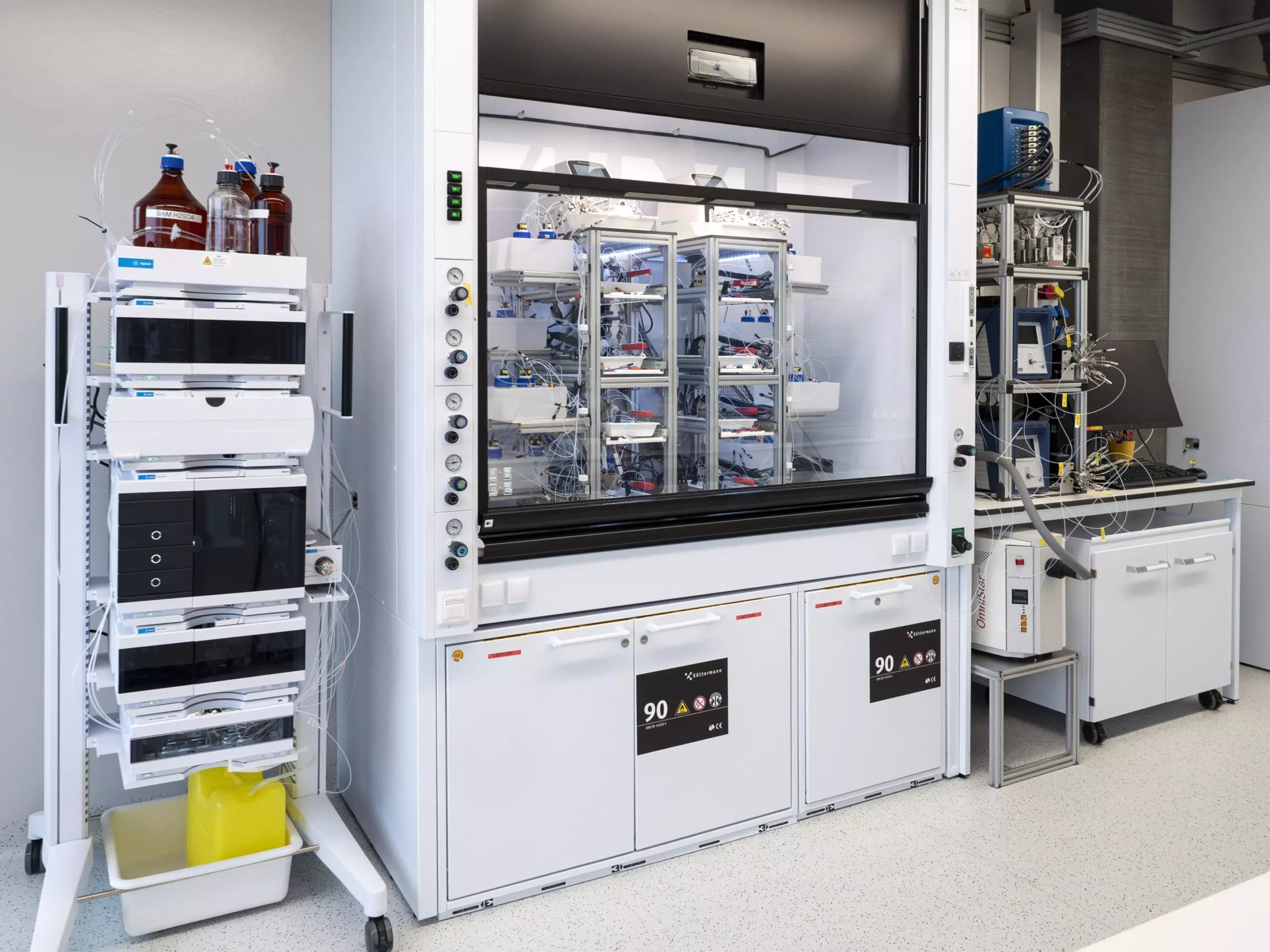The process of converting CO2 back into synthetic fuels, known as synfuels, has long been considered a promising solution in mitigating climate change. Researchers at Empa and the Paul Scherrer Institute (PSI) have been at the forefront of this research, working tirelessly to develop efficient and economic methods for producing synfuels from CO2. However, the process comes with its challenges, as more than 20 different products can be formed during CO2 electrolysis, making separation difficult.
Empa researchers, led by Corsin Battaglia and Alessandro Senocrate, have made significant advancements in this field by developing a system that allows for the investigation of up to 10 different reaction conditions simultaneously. This system, consisting of 10 reactors with catalysts and electrodes, is a groundbreaking development in CO2 electrolysis research. With the ability to record various parameters automatically and in real-time, the researchers are able to generate a large amount of high-quality data, leading to accelerated discoveries.
During the development of the system, Empa researchers collaborated with Agilent Technologies to create the world’s first online liquid chromatography device for real-time identification and quantification of liquid reaction products during CO2 electrolysis. This technological advancement has allowed for experiments to be conducted 10 times faster, resulting in a significant increase in data generation. To manage this influx of data, the researchers have also developed a software solution that will be made available to other scientists on an open-source basis.
In an effort to promote collaboration and knowledge sharing in the scientific community, the researchers at Empa are committed to making their research data accessible to others. Through initiatives like the PREMISE project, which aims to create standardized methods for storing and sharing data, the team hopes to facilitate new insights and discoveries in the field of CO2 electrolysis. By opening access to their data and research findings, Empa is paving the way for a more collaborative and innovative research environment.
The advancements made by the Materials for Energy Conversion laboratory at Empa have far-reaching implications for the future of synthetic fuel production and sustainable chemistry. The new parallel CO2 electrolysis system is poised to play a critical role in large-scale national projects, such as the NCCR Catalysis, by providing valuable data and know-how to other research institutions in Switzerland. As the researchers continue to refine both the hardware and software of the system, the potential for accelerated discoveries in the field of CO2 electrolysis is vast.
The work being done by researchers at Empa and PSI in the development of efficient and economic methods for producing synfuels from CO2 is groundbreaking. By accelerating the process of CO2 electrolysis and sharing their data and research findings with the scientific community, these researchers are driving innovation and collaboration in the quest for sustainable energy solutions. The future of synthetic fuel production looks promising, thanks to the dedication and ingenuity of these researchers.


Leave a Reply